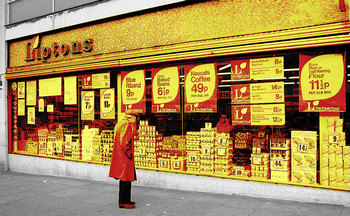50 Years Ago: The ABC of inflation / Earth notes / For the record
The ABC of Inflation
All sorts of explanations have been offered for the abnormal rise of prices since 1939 as compared with the up-and-down movements of prices in the nineteenth century. Most of the so-called explanations take the form of blaming some group or other for being “greedy”; bankers, or manufacturers, or retailers or trade unionists. It is an explanation that a glance at certain facts will show to be nonsense. Did the copper companies reduce their prices by 40 per cent in 1971 because they had suddenly become less greedy? Between 1948 and 1968 prices rose by 100 per cent in Britain, but only by half that amount in America and Switzerland: are the British twice as greedy? In the nineteenth century did the whole population go through alternating phases of being more greedy and less greedy? Between the end of 1920 and the middle of 1933 prices fell by over 50 per cent. The fall was continuous for thirteen years. What had happened to greed?
 The fact is that sellers always try to get as big a price as they can, “as much as the market will bear”, and if they can get more or are forced to take less it is because external circumstances over which they have little or no control determine that it shall be so.
The fact is that sellers always try to get as big a price as they can, “as much as the market will bear”, and if they can get more or are forced to take less it is because external circumstances over which they have little or no control determine that it shall be so.
Two popular beliefs are that prices go up because wages go up, or vice versa. It does not occur to those who hold one or the other view that wages are prices –the price the worker gets for the sale of his labour-power, his mental and physical energies, to the employer. So, properly stated, their two propositions become the single useless assertion that prices go up because prices go up.
If they re-stated it in the form that one group of prices (wages) go up because the other group of prices go up –or vice versa –they overlook the truth that both groups of prices go up because of common external factors which affect both of them, more or less to the same extent.
(Socialist Standard, October 1972)
Earth Notes
Dear diary
Things are getting worse between me and capitalism.
It says it loves me and wants to take care of me. But how many times have I heard that?
It’s time I faced up to the truth.
Capitalism doesn’t care about me, it only cares about making money.
I thought it was such a charmer, with its dazzle and glamour and can-do flair, but I was being fooled.
It’s a psychopath.
Whatever goes wrong is never its fault.
Whenever I protest, it tells me I’m imagining things, I don’t understand, I worry too much.
When I say there are other ways of living, it tells me I’m being delusional.
Whenever it hurts me it swears that it’s sorry, that it can change, that it will be better in future. But it never is.
I look terrible. I feel drained. I’m getting sicker all the time, but capitalism just feeds and feeds and won’t stop.
I’m terrified that one day it’ll kill me and then go and find some other planet to shack up with.
I really want a social system that’s the opposite of capitalism, one where there’s no buying and selling but only free sharing, one that treats me with real love and respect, one that tells me I’m beautiful and means it, one that knows how to take proper care of me instead of prostituting me to its billionaire friends, one that makes me feel safe and is fun to be around.
Dear diary, I know I can have that society, and I know I deserve it. I just need to find the courage to leave capitalism, before it’s too late.

For the Record
Here is what the new Prime Minister has promised her government will deliver:
‘I have a bold plan that will grow our economy and deliver higher wages, more security for families and world class public services’ (i paper, 3 September).
We record this so that it can be compared with what happens. Which, from past experience and a knowledge of how capitalism works, will be yet another failure to make capitalism work in the interest of the majority by delivering higher wages and world class public services. Wages and public services always take second place to profits as that’s the nature of the system. To those don’t believe us, we say wait and see.
Apparently, when she was younger she had other ideas. According to Private Eye (15 July):
‘Delegates who attended the 1993 Conference of the Liberal Democrat Youth & Students recall then-firebrand Truss arguing for, er, the abolition of money.’
